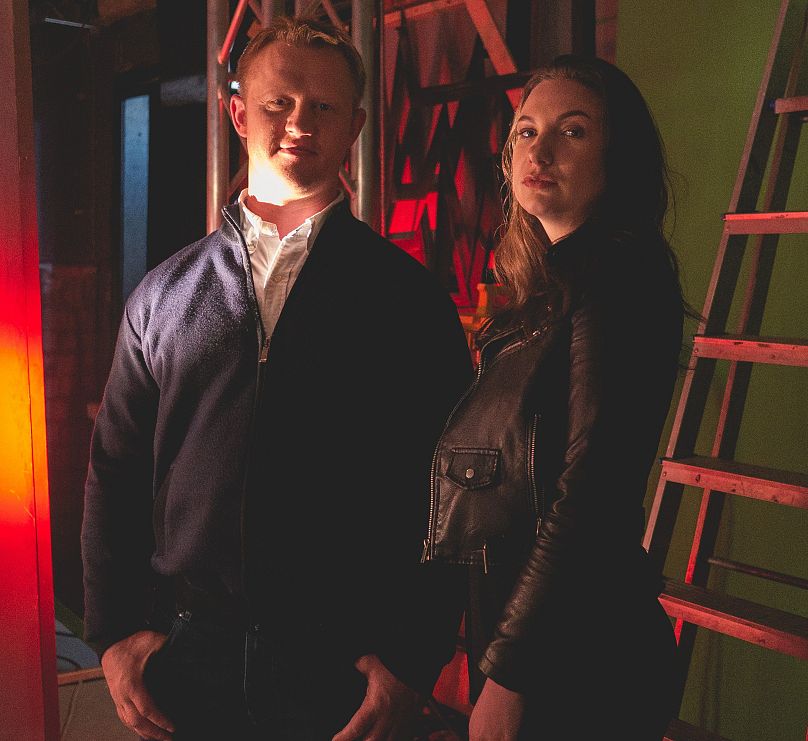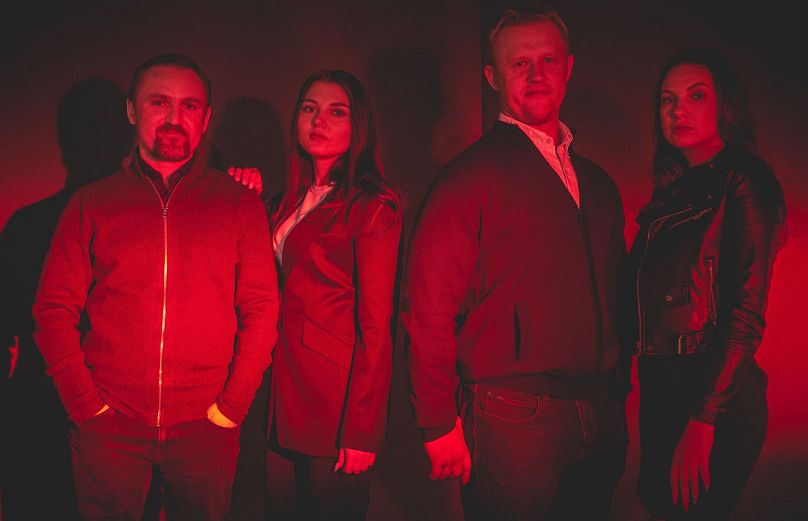The raid is symptomatic of a wider crackdown on dissent in Belarus since the disputed reelection of Lukashenko last August had sparked huge protests.
It was May 21, 2021, when police broke into the editorial office of Belsat TV in the centre of Minsk, the capital of Belarus.
After the forced closure of the web channel Tut.by on May 18 and the arrest of over 500 journalists since August 2020, Belsat TV was the last independent platform that remained in the country ruled by President Alexander Lukashenko.
The raid is symptomatic of a wider crackdown on dissent in Belarus since the disputed reelection of Lukashenko last August had sparked huge protests.
Based in Ulitsa Ihnacienki, inside an anonymous, grey building on whose facade the sign “badminton courts” whimsically stood out, the Belsat TV office consisted of three or four rooms, two big tables covered by ash and empty cigarette packets, and a small television studio.
“We guess this place is full of bugs," journalists told us when we visited them just two days before police came.
"You know what? The owner of the building is a good friend of Lukashenko, so you can imagine how safe we are here," they added.
On 21 May, six journalists were immediately arrested while many of their colleagues decided to get out of Minsk in order to avoid the same fate.
The editorial office was forcibly closed. Stas Ivas, 30, producer of Belsat TV, managed to avoid capture.
“For now, here’s the situation," he said. "Two of our colleagues are still in jail, sentenced to two years. Someone is free, someone left the country.
"Working here is almost impossible. Even being the administrator of a little channel on Telegram is totally unsafe: sooner or later, police will discover who you are, and, if you just write something against the government, they’ll catch you.
"Let's imagine what can happen to those who try to work as independent journalists.”
In the last weeks before being closed, Belsat TV was investigating the business dealings of the daughter-in-law of Lukashenko and others associated with him, as well looking into deals between Belarus and Ukraine - a topic that someone did not appreciate.
During the huge demonstrations organised between August and September 2020, local journalists documented every single arrest, every protest, every brutality committed by the police, allowing the rest of the world to know what was going on in Belarus.
Ales, one of the video-producers at Belsat TV, was on the front line from the beginning.
“On the night between 13 and 14 August, they started to release the prisoners that had been arrested after the elections," he said.
"So, we journalists went there, in front of Okristina prison in Minsk where demonstrators were jailed, and recorded everything. We have seen people tortured, beaten, treated with electroshock.
"We were working every day, from morning until night, and it was hard, really hard. After a while, I felt ill. I stayed in bed for a week, unable to get up, because my nerves were totally in pieces due to what I had seen. And after that, I was arrested and taken to Okrestina prison. Life is crazy, isn’t it?”
As well as working as a journalist, even telling your own story could be quite unsafe in today’s Belarus.
Dima is a former policeman who left his job just after the elections because he didn’t want to take part in the crackdown on demonstrators. Due to that, he says was arrested and tortured by his ex-colleagues, and then, after being released, he agreed to give an interview to Belsat TV.
“The interview was broadcast in early May," a friend of Dima says.
"It was really impressive, and a lot of people, here and abroad, shared it on social media. Some days later, on May 20, Dima was arrested again. He is accused of publicly insulting an official and, despite his serious health issues, he was sentenced to two years in prison. Now, he’s detained in Correctional facility Number Seven. That's the way things are, here in Belarus," they concluded.
Every weekday, Uncovering Europe brings you a European story that goes beyond the headlines. Download the Euronews app to get a daily alert for this and other breaking news notifications. It's available on Apple and Android devices.


